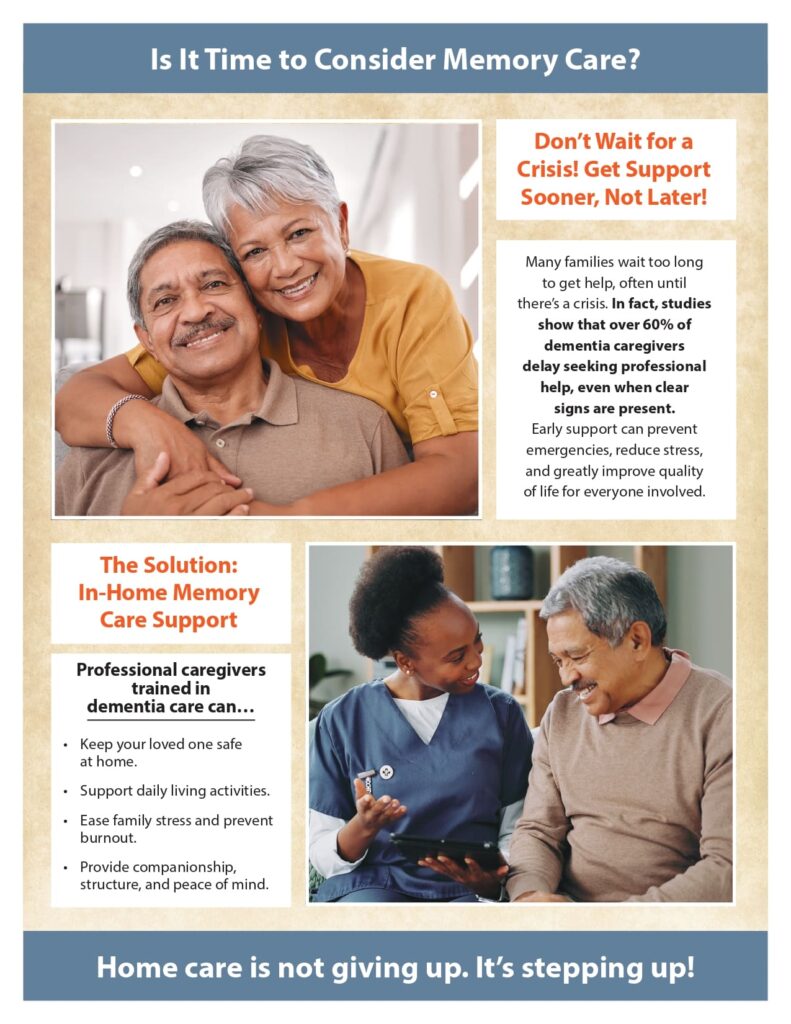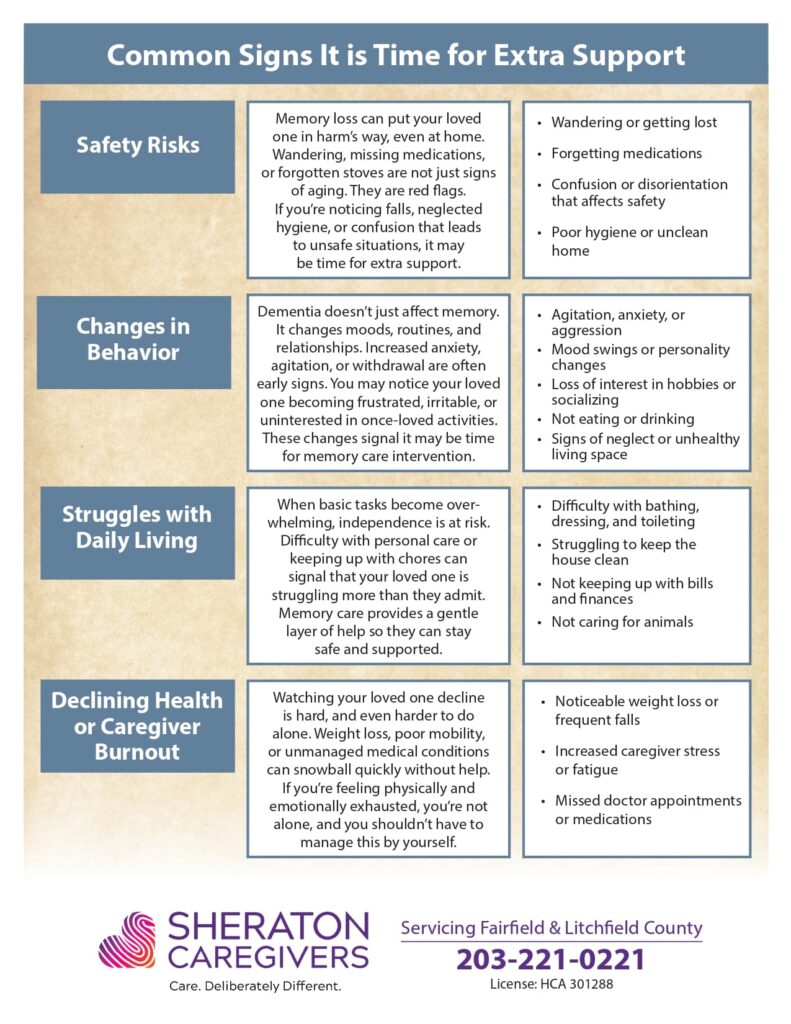TLDR
This blog explores memory care—what it is, why it’s critical for those with dementia, its costs, pros and cons, and practical strategies for choosing the best care. We’ll wrap up with key takeaways and how Sheraton Care supports families with dignity-focused elder care.
Introduction
When dementia enters a family’s life, specialized memory care becomes essential to ensure both safety and quality of life for loved ones.
Types of Memory Care Communities
- Standalone facilities: Dedicated memory-care residences designed for dementia.
- Units within assisted-living or nursing homes: Specialized wings inside larger complexes.
Continuing care retirement communities (CCRCs): Offer a full spectrum of support, from independent through memory care.
📊 The Bigger Picture in U.S. Elder Care
- Unpaid care strain: 11–12 million Americans serve as unpaid dementia caregivers, while many caregivers face burnout and poor health outcomes.
- Dementia crisis: Dementia prevalence is climbing—projected 8.2 million with Alzheimer’s/dementia by 2030.
- Systemic challenges: The COVID‑19 pandemic, workforce shortages, and regulatory gaps have underscored flaws in elder-care infrastructure.
Conclusion
Memory care is a critical lifeline for families affected by dementia, combining secure environments, specialist staff, and therapeutic engagement—yet it demands thoughtful planning due to its complexity and cost.
Key takeaways:
- Memory care offers tailored, safe support that often delays nursing-home placement.
- Strong oversight—certification, staffing, programming—makes a difference in quality of life.
At Sheraton Care, we’re committed to delivering dignity-driven memory care, offering family guidance, transparent costs, and specialist-led programs that protect both safety and quality of life. If you’re exploring memory care solutions, Sheraton Care is here to support your family every step of the way.



